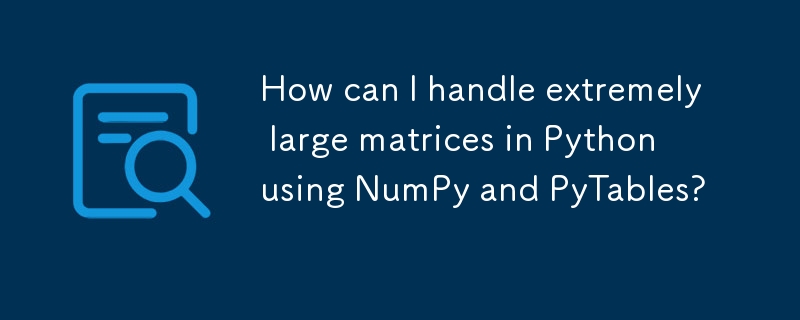Home >Backend Development >Python Tutorial >How can I handle extremely large matrices in Python using NumPy and PyTables?
How can I handle extremely large matrices in Python using NumPy and PyTables?
- Patricia ArquetteOriginal
- 2024-10-31 03:05:31776browse

Handling Extremely Large Matrices in Python with NumPy
NumPy, a powerful Python library for numerical operations, excels in handling sizeable matrices. However, its capabilities may be strained when encountering exceptionally large matrices, such as those exceeding dimensions of 50000 x 50000. This constraint stems from the substantial memory demands of such matrices.
Overcoming Memory Limitations
The challenge of processing large matrices lies in the massive memory requirements they entail. To address this, NumPy falls short of providing a native solution. Instead, consider employing PyTables in conjunction with NumPy.
PyTables offers a practical workaround by leveraging HDF format to store data directly on disk. This approach allows for optional compression, potentially reducing the memory footprint by a factor of 10 or more. PyTables also boasts impressive performance, enabling rapid operations on datasets containing millions of rows.
Accessing Data as NumPy Arrays
Retrieving data from PyTables for processing in NumPy is straightforward. Specify the desired rows and assign them to a NumPy recarray:
<code class="python">data = table[row_from:row_to]</code>
The HDF library transparently handles data extraction and conversion to NumPy format, ensuring seamless integration between the two libraries.
The above is the detailed content of How can I handle extremely large matrices in Python using NumPy and PyTables?. For more information, please follow other related articles on the PHP Chinese website!

